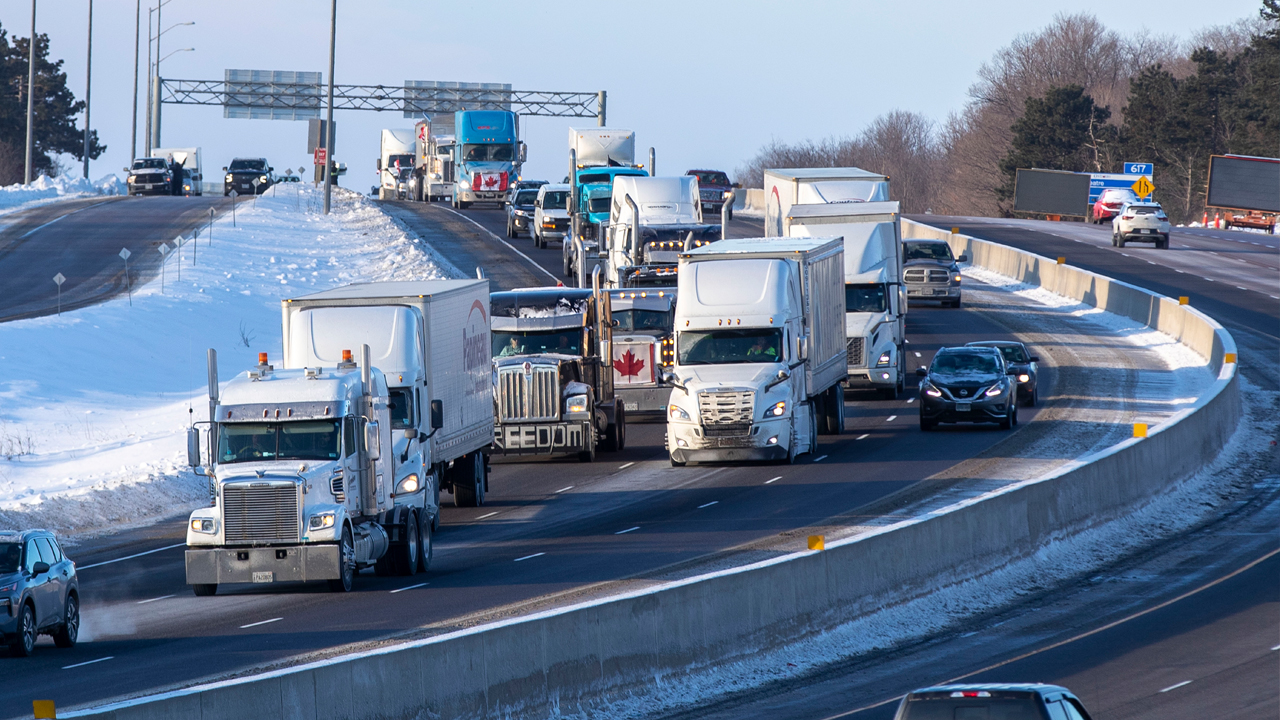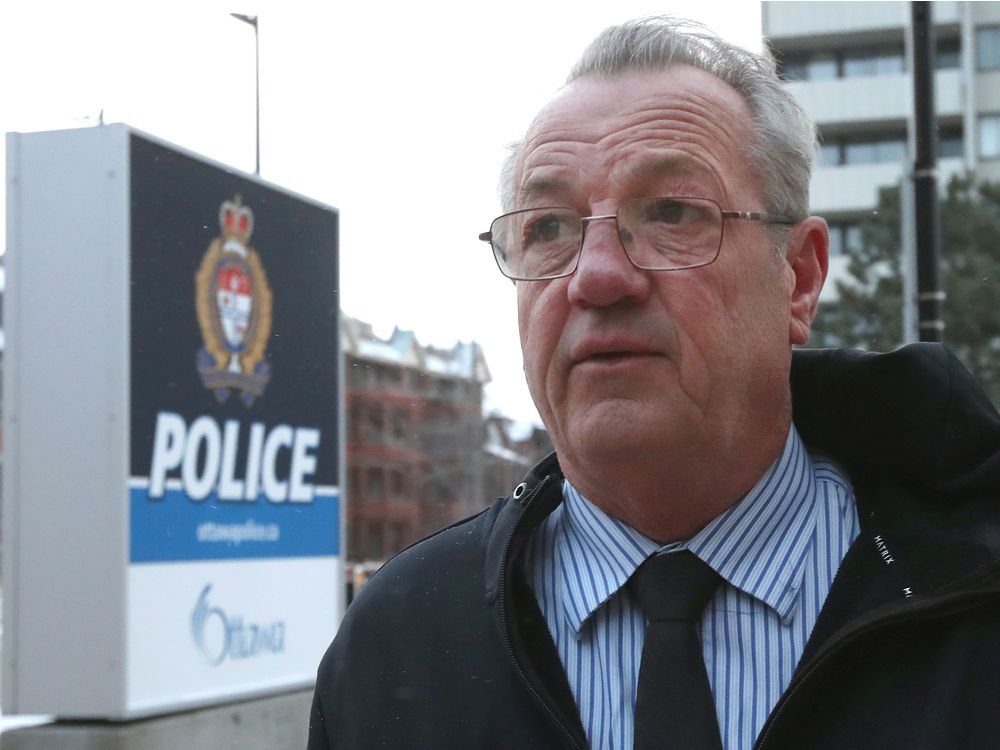Published Tuesday, March 22, 2022 8:47AM EDT
OTTAWA --
The federal Liberals and New Democrats have finalized an agreement that, if maintained, would keep Prime Minister Justin Trudeau’s government in power until the end of the current Parliament in exchange for progress on longstanding NDP priorities.
Trudeau announced on Tuesday morning that the confidence-and-supply agreement has been brokered, is effective immediately, and will remain in effect until June 2025.
“We're different political parties, we stand for different things. But where we have common goals, we cannot let our differences stand in the way of delivering what Canadians deserve. That's why we're taking this step,” said Trudeau.
“What this means is that, during this uncertain time, the government can function with predictability and stability… and get things done for Canadians,” the prime minister said, adding that it was “not an easy decision.”
The agreement will see the NDP caucus prop up the government in future confidence votes and back them on four budgets, in exchange for progress before the next election on several key policy issues that are shared Liberal-NDP priorities.
Confirming the deal on Tuesday, NDP Leader Jagmeet Singh said that his party is “using our power to get help to people.”
“In this time, everyone I talk to, people are telling me that they need help now. And they expect politicians to deliver that help. And that's exactly what we're doing,” he said.
Called “Delivering for Canadians Now, A Supply and Confidence Agreement,” the two parties have agreed that over the next three years the government will:
- Launch a new dental care program for low-income Canadians. Starting with under 12-year-olds in 2022, expanding to under 18-year-olds, seniors, and persons living with disabilities in 2023, and then full implementation by 2025, with no co-pays for anyone earning less than $70,000 annually.
- Continue progress towards a universal national pharmacare program passing a ‘Canada Pharmacare Act’ by the end of 2023, and then tasking the National Drug Agency to develop a national formulary of essential medicines and a bulk purchasing plan by the end of 2025;
- Advance a series of measures aimed at affordability and housing costs including a ‘Homebuyers Bill of Rights’ and an ‘Early Learning and Child Care Act’;
- Proceed with policies and programs meant to target climate change;
- Ensure supports for workers are implemented including supporting labour unions and starting the 10-day paid sick leave policy imminently;
- Invest more in Indigenous reconciliation including supporting residential school survivors;
- Improve fairness in the tax system by addressing profits made by big banks during the pandemic; and
- Eliminate barriers to democratic participation by exploring ways to expand how people can vote such as improving mail-in balloting and potentially allowing a three-day voting period.
“All these are things that we had in our platform. All these are things that we committed to Canadians that we would work hard on and constructively on, and that's what this agreement is about. It's about fulfilling the clear mandate Canadians gave Parliament by improving the way we do politics,” Trudeau said.
The deal, worked out by party leadership, was presented to Liberal and NDP MPs for approval on Monday night. The news was well received in the Liberal caucus, according to sources. And, according to a senior NDP source, while that party’s caucus was not in unanimous support, the majority was.
Prior to his remarks, a senior NDP source told CTV News that New Democrats were willing to formally support the Liberals now for a host of reasons, including post-pandemic exhaustion and uncertainty over the war in Ukraine, and said they feel it is important to show parties can work together despite their differences.
The deal made for a raucous question period on Tuesday, seeing considerable heckling from the Conservative and Bloc Quebecois benches towards the Liberals and New Democrats, with interim Conservative Leader Candice Bergen consistently calling Trudeau’s government the “NDP-Liberal government.”
WHAT IT MEANS FOR PARLIAMENT
According to one Liberal source who attended an emergency caucus meeting on the subject on Monday night, the agreement was billed to MPs as “making Parliament work."
Trudeau echoed this sentiment in his press conference, saying that Canadians sent MPs back to Ottawa following the 2021 election with a “clear mandate” to work together to deliver results.
The kinds of votes the NDP will have to support through this deal include: budget bills, estimate and supply legislation, and other motions that the Liberals deem matters of confidence.
The NDP have also agreed to not move a vote of non-confidence or vote for a non-confidence motion brought by another party during this time.
The NDP have said they still plan to act like an opposition party, will keep pushing for the government to do more than what is part of this agreement, and should something happen or not,
both sides are free to walk away from the agreement.
“There's going to be moments where we disagree… But we're hopeful that there are going to be opportunities outside of agreement where we can actually get more for people and we're going to continue to do that,” Singh said.
Asked whether this move weakens the New Democrats electorally, giving the Liberals the ability to potentially tout accomplishing expansions of health programs,
Singh said he doesn’t overly care because, ultimately, people will be able to get their teeth fixed and afford medications.
Trudeau said Tuesday that the deal is not about compromising either party’s core beliefs, and that there will continue to be “healthy debate” between the parties. As well, the Liberals will continue to look to other caucuses in the House of Commons for support on issues that the NDP may not be supportive of, such as enhanced defence spending in response to the ongoing Russia-Ukraine crisis.
“Every piece of legislation will continue to get the scrutiny it merits, committees will continue to do their essential work, and members of Parliament will continue representing their constituents and holding the government to account,” said the prime minister.
As part of the deal, the parties have agreed to a system of “no surprises” and will be talking frequently in order to stay on the same page. This will include enacting quarterly leaders’ meetings, regular meetings between their House leaders and whips, and monthly “take-stock” meetings from an oversight group comprised of staff and politicians.
They have also settled on the NDP backing “a limited number” of what are called programming motions, such as time allocation or closure, to help quickly pass legislation both parties support.
The deal will also see the NDP provided briefings from ministers and top bureaucrats on policy matters included in the deal, including on the budget and legislation.
CONSERVATIVES CLAIM 'COALITION'
Given the Liberals are in a minority position, so long as this agreement is maintained it will inject years of federal stability allowing Trudeau’s cabinet to continue advancing their priorities without concern of falling on a confidence vote.
Given the last federal election was in 2021, the next scheduled vote would happen in October 2025. This deal is set to remain in effect until Parliament rises in June 2025, opening up the possibility of an early election call that summer.
Since the Liberals were first reduced to a minority in 2019, the NDP have often been the government’s main ally, voting to support their initiatives, but that support had never been formalized. Of the 338 seats, the Liberals currently hold 159, the Conservatives hold 119, the Bloc Quebecois hold 32, the NDP hold 25, the Greens hold two and there is one independent MP.
The Conservatives have slammed the deal, with Bergen telling reporters that the “coalition” will be costly for Canadians.
“That was not what Canadians voted for, just a few short months ago. They did not vote for an NDP-Liberal government that would be spending billions of dollars,” she said.
There are differences between the agreement that the Liberals and NDP have reached, and Bergen’s suggestion that Canada now has majority government run by a formal coalition.
The latter is when parties join forces to hold a larger share of seats than any other party, and typically where the cabinet includes members from both parties. Extremely rare in Canada, a coalition government has not been formed federally in modern political times.
“There are a lot of Liberals that are coming to me and saying they're very worried about the economic direction under a Justin Trudeau government. I cannot imagine this morning how they are feeling,” Bergen said, claiming Singh is now “basically” the deputy prime minister under this agreement, and vowing to hold both parties to account.
Chrystia Freeland remains Canada’s deputy prime minister and minister of finance. No members of the NDP are joining the federal cabinet.
The Conservative party will be electing its next leader in September, and should this major dynamic shift in the domestic political landscape last, the victor would be facing their first few years in the job as leader of the Official Opposition.
Responding to Bergen’s coalition claims and suggestions the NDP are now “in charge,” Singh said: “I want to make sure it's really clear: this is not a coalition. We never intended it to be a coalition, and it's never been something that we either put forward. Frankly it wasn't offered, nor would I have accepted it.”
Commenting on the agreement, Bloc Quebecois Leader Yves-Francois Blanchet told reporters that he was not solicited by the Liberals to join this pact, but he had a “cordial” conversation with Trudeau before the deal was announced.
“I explained to him that he doesn't have anything more to fear from the Bloc now than before… We'll try to improve things and if they do things with which we agree, we will keep being in agreement, but we will never surrender what we are, our responsibility or the mandate that was given to us,” Blanchet said.
“I remind everybody that every citizen who voted for the NDP, did not vote for the Liberals,” he added.
While speculation continues about what this agreement will mean down the line for the political futures of Trudeau and Singh, one political science expert told CTV News Channel she doesn’t think much will be changing in the short term.
“I don't see things being that much different than what we've had over the last couple of years. The NDP could always be relied on by this government to vote in favour of their priorities, and not to vote them out. Remember, the only reason we had an election last year wasn't because of a confidence vote, it was because Justin Trudeau wanted an election, and there's nothing in this deal that prevents him from doing that again in the future,” said University of Windsor political science professor Lydia Miljan on Tuesday.



